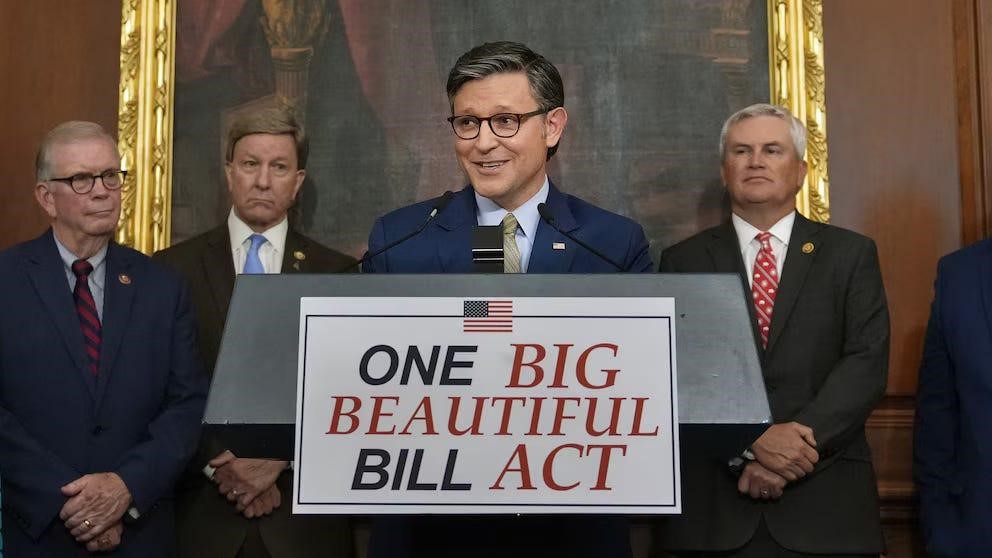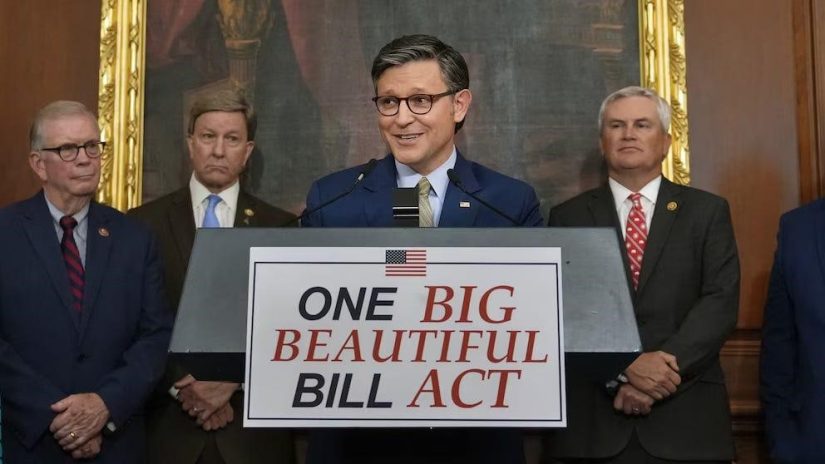
**The One Big Beautiful Bill Act: Effects on Financial Independence Aspirants**
On July 3, 2025, the House of Representatives approved the One Big Beautiful Bill Act (OBBBA) with a tight vote of 218 to 214. This legislation, which was signed into law by President Trump the following day, has major ramifications, especially for individuals aiming for financial independence and early retirement (FIRE). The nonpartisan Congressional Budget Office (CBO) estimates that the OBBBA will add around $3.3 trillion to the budget deficit in the next ten years.
To fund this substantial budget, the OBBBA imposes cuts to essential social safety net programs such as Medicaid, the Supplemental Nutrition Assistance Program (SNAP), and clean energy tax incentives, while raising the federal debt ceiling by $5 trillion. The CBO’s report also indicates that roughly 11.8 million people might lose their health insurance due to the reductions in Medicaid and other related measures.
In spite of strong opposition to the bill, shown by a Quinnipiac University survey indicating that 53% of registered voters are against it, some see possible advantages, particularly those who are committed to the financial independence lifestyle. With lower taxes, there is an increased opportunity for savings, investment, and wealth building, which are core aspects of attaining FIRE.
### Key Aspects of OBBBA That Impact FIRE Aspirants
For background, the contemporary FIRE movement has been greatly shaped by individuals sharing their paths to financial independence. Important aspects within the OBBBA present both obstacles and fresh possibilities for those chasing these objectives.
#### 1. Slightly Higher Risk of Losing Affordable Health Coverage
A primary worry for early retirees is managing the expenses of health coverage. Until they qualify for Medicare at age 65, early retirees usually depend on the Affordable Care Act (ACA) marketplace for health insurance. Although enhanced subsidies were once available, the expected reductions in Medicaid from the OBBBA may hinder access to affordable insurance. This is crucial as losing benefits could result in high premium costs for early retirees, requiring diligent financial planning.
#### 2. Increased Child Tax Credit
The child tax credit increases to $2,200 per child, accounting for inflation, thus providing financial relief for families. The phaseout commences at $400,000 for married couples filing jointly, giving some assistance to parents managing the rising costs of raising children in expensive areas.
#### 3. Expansion of 529 Plans
The OBBBA expands the tax-free distributions from 529 plans to encompass private and religious K-12 education and covers expenses for postsecondary credentials. This enhances flexibility for families saving for their children’s education, facilitating transitions from K-12 to higher education.
#### 4. Raised SALT Deduction Cap
For states with elevated taxes, increasing the SALT cap to $40,000 will offer immediate relief to homeowners, positively influencing real estate values in high-cost zones. This could be advantageous for FIRE aspirants residing in urban settings.
#### 5. Permanent AMT Relief
The exemptions for the Alternative Minimum Tax (AMT) are now permanently adjusted for inflation, protecting a wider portion of the upper middle class from unforeseen tax burdens.
#### 6. New “Trump Accounts” for Children
This new program launches tax-advantaged accounts for kids under 8, promoting early saving and investment. Parents can contribute up to $5,000 each year, alongside a government seed contribution.
#### 7. Temporary Deduction for Tips and Overtime Earnings
The OBBBA includes temporary measures allowing specific income types to be deductible, providing tax relief for individuals in the service sector and those working overtime.
### Conclusion
While the One Big Beautiful Bill Act has its share of criticisms, particularly regarding its fiscal consequences and cuts to social programs, it presents numerous provisions that can benefit financially astute individuals striving for financial independence. The lower tax burden opens up pathways for increased savings and investments, essential elements of the FIRE movement.
In this unpredictable landscape, it is vital for individuals to maintain proactive financial strategies. As circumstances continue to shift, those committed to financial freedom should prioritize aspects under their control, such as their work ethic, saving rates, and investment practices.
